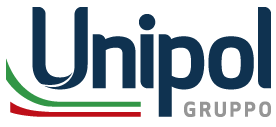Policies
Over time we have formalised our commitment to the creation of shared and long-term value in specific reference documents on the operating procedures of various corporate areas, consolidating consistency with our values and principles.
Our guidelines and internal regulations aim to reinforce our approach to sustainability at all corporate levels, by including social and environmental aspects in management and business decisions.
Guidelines for Corporate Social Responsibility
The Guidelines for investment activities refer to the Unipol Group strategy in financial activities and define the criteria for conduct, the value of reserves and scope of transactions permitted, with the aim of ensuring the solidity of the group.
Sustainability Policy
The commitments assumed in the Code were further developed in the Sustainability Policy, approved by the Board of Directors at the start of 2018, which formalises the principles, accepted behaviour and objectives relating to the corporate culture.
The Sustainability Policy, inspired by the Sustainable Development Goals and the Global Compact principles commits the company to respect for:
- human and labour rights;
- environmental protection;
- fairness and transparency for consumers;
- fair business practices, particular as regards lobbying and tax strategy practices;
- equal opportunities;
- integration of sustainability into the business
Unipol Group Investment Policy
The Investment Activity Guidelines refer to the strategy of Unipol Group in financial assets and define the conduct criteria, the value of reserves and the scope of eligible transactions, with the aim of ensuring the Group’s solidity.
Data collection procedure for the purpose of reporting to SRI investors and Sustainability rating
With the aim of governing the process of collecting data and information for the preparation of reports for SRI investors and the rating of Unipol Gruppo S.p.A. and UnipolSai Assicurazioni S.p.A. securities in Sustainability Indexes (“Sustainability Rating”), the Unipol Group has issued internal procedures that identify the roles and responsibilities of the departments involved.
Outsourcing policy
 The Group’s outsourcing and supplier selection policy governs the decision-making process, responsibilities, tasks and controls required for the outsourcing of corporate activities and functions, within the Unipol Group and before third parties, strengthening the monitoring of risks arising from outsourcing choices. The strategic requirements to ensure stability and continuity to outsourced activities include the signature of the Supplier Code of Conduct, which takes inspiration from the principles of the Global Compact (in 2018 the Group undersigned the Global Compact Principles concerning Human Rights, Labour, Environment and Anti-Corruption) and ISO 20400. In particular, the Supplier Code of Conduct outlines what Unipol expects from Suppliers and provides for its right to control and inspect processes and structures, with or without the aid of third parties, and the right to set out a penalty system in respect of Suppliers, including the extraordinary termination of the agreement for just cause, cancellation of the contract, suspension or complete cessation of activities as UnipolSai Group Supplier in the event of a breach of any of the principles contained in the Group’s Supplier Code of Conduct.
The Group’s outsourcing and supplier selection policy governs the decision-making process, responsibilities, tasks and controls required for the outsourcing of corporate activities and functions, within the Unipol Group and before third parties, strengthening the monitoring of risks arising from outsourcing choices. The strategic requirements to ensure stability and continuity to outsourced activities include the signature of the Supplier Code of Conduct, which takes inspiration from the principles of the Global Compact (in 2018 the Group undersigned the Global Compact Principles concerning Human Rights, Labour, Environment and Anti-Corruption) and ISO 20400. In particular, the Supplier Code of Conduct outlines what Unipol expects from Suppliers and provides for its right to control and inspect processes and structures, with or without the aid of third parties, and the right to set out a penalty system in respect of Suppliers, including the extraordinary termination of the agreement for just cause, cancellation of the contract, suspension or complete cessation of activities as UnipolSai Group Supplier in the event of a breach of any of the principles contained in the Group’s Supplier Code of Conduct.
For more information on the fair and responsible management of suppliers, please refer to the contents of the Group’s Integrated Report and Global Compact Communication on Progress, a report prepared annually by the Group to communicate the state of progress of the assessment, policies, objectives and implementation of the Principles concerning Human Rights, Labour, Environment, and Anti-Corruption.
Travel policy
In order to streamline company costs and reduce the environmental impact of work trips, the Unipol Group has acted on two fronts: on the one hand, reducing interoffice transfers with the web conferencing project, and on the other, reducing and optimising car use by inviting all employees to follow a set of instructions that, while maintaining an adequate standard of service, give preference to public and collective transport. In line with these indications, carpooling and bike sharing services have been set up at the various offices of the Unipol Group, and a comprehensive sustainable mobility plan is being defined in cities where the Group is based. The commitment of the Group also includes infomobility; not only information on the best routes and means of transport for reaching our headquarters and offices, but also details on the economic incentives in place encouraging employees to use public transport and useful handbooks on how to reduce the environmental impact of travelling to a minimum.
Guidelines on energy consumption
At a Group level we have been promoting behaviour that contributes to reducing the environmental impact of Group Companies for some time. In order to increase the environmental awareness of employees, guidelines on energy consumption were adopted to avoid energy waste as a result of the improper use of lighting, office equipment and air-conditioning systems (cooling and heating).
Printing Policy
The corporate policy on printing devices defines actions related to both strictly technological aspects as well as organisational aspects in order to reduce costs and environmental impacts. With the introduction of multi-function devices, we have strengthened the printing optimisation process, and thanks to the cooperation of employees we have adopted use criteria for the printers based on actual corporate needs, aimed at promoting eco-efficiency.
Sponsorship and Donation Guidelines
For proper and effective resource allocation, the Unipol Group has issued an internal procedure that guarantees the Group’s uniform management of sponsorships, donation and generic promotional contributions.
On the basis of the common guidelines that focus on involvement in four areas (artistic and cultural heritage, environment, future generations, solidarity), the opportunity of initiatives for the benefit of the community is assessed by verifying consistency with the positioning and image objectives defined for the Group.
OMM
In the context of a structured and organic system for prevention, deterrence and control, each Group company has adopted an Organisation and Management Model, respecting the guidelines of the Parent Company.
This Model, which was approved by the Board of Directors of 19 March 2009, consists of a 'General Section' and individual 'Special Sections' drawn up for the various categories of offences identified in the Decree.
Remuneration policy
The Group has adopted, in accordance with the Corporate Governance Code for listed companies, a policy on the remuneration of members belonging to the administrative and supervisory bodies, the General Manager and the Managers with Strategic Responsibilities of the Company, which also regulates the investments held by the persons indicated above in the Company and its subsidiaries.
Annual Report on Corporate Governance
The “Annual Report on Corporate Governance” incorporates the recommendations contained in the Corporate Governance Code, reflects its revisions and implements the changes necessary in terms of Governance System and operating procedures.
Vendors' Code of Conduct
The Unipol Group’s commitment to cooperating with the stakeholders in processes of shared value creation is also expressed through the integration of Sustainability into its procurement practices. To that end, Unipol participates in the United Nations’ “Global Compact” initiative and applies ISO 20400 - Sustainable Procurement, which collectively set forth the Group’s expectations for Vendors on fundamental aspects of responsibility, including human rights, labour standards, work conditions, environmental protection, anti-corruption and business ethics.


